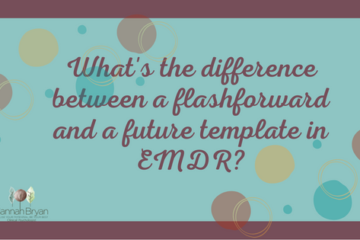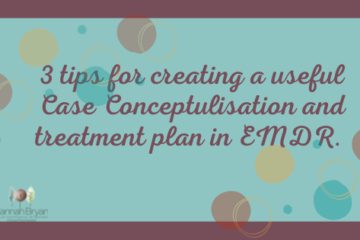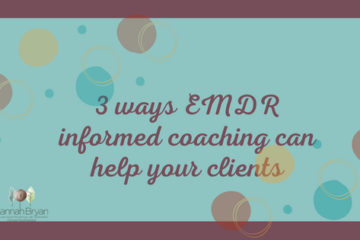My nephew (who lives with me) often gets really cross when I ask him to help out with the cleaning. He always argues “What’s the point?” My standard answer to this is that there is really no point …. to anything really …. Unless of course it is important to you. I want to live in a house that’s tidy(ish) and clean(ish) and to him at 19 this is not important. It really strikes me that the point therefore is completely individualistic. It depends what matters to you and that is so true when we think about our EMDR journey and in particular becoming Europe Approved Accredited Practitioners.
When I initially trained in EMDR I wanted to grow and develop but Accreditation was most likely to have been at the back of my mind. To be honest I can’t remember it being high on my agenda to become accredited. It also wasn’t high on my agenda to go back over the key points in my training again and again to check in that I was properly grasping things. I had trained, it was done (or so I naively thought) and I just wanted to get on with it.
In last weeks blog I talked about how much we can forget post training (https://theemdrsupervisor.com/what-makes-an-effective-emdr-therapist/) and how much I feel I have learnt from returning to training and going over and over the standard training. I think that this has been a changer for me in many different ways. For me, I learn so much more by revisiting things time and time again. I recently did a coaching course around developing my business. All our sessions were recorded and we could listen back if we wanted to. I would often do this a fair few weeks after the sessions and I was always surprised by the amount of information I had missed. I had thought I was alert and focused in the session but for whatever reason, my brain only took on board so much detail.
Sometimes it feels like it’s only with more experience that things make more sense. So the first time I learnt about end of channels for example it didn’t make too much sense to me as I had not experienced doing EMDR with clients and therefore not experienced getting to the end of the channel, but with more experience of EMDR sessions it started to fall into place. It clicked, it made sense! And we must remember that this is only one small part of the amount of information we are learning in our standard training. We have to live it and experience it for it to make more sense and by then we may well have actually forgotten what we were taught in the first place. Does this sound familiar?
When you go through the accreditation process, you do so with a Consultant supervisor who has not only been through the same process but attended a significant amount of training and completed Consultancy training, all this is to ensure that they have the right training, knowledge and experience to assess your competencies.
I think that supervision combined with working towards your accreditation goals builds confidence in the model and in yourself. I always like to know that I am doing a good job so I will want to know what is expected of me. My workbook (https://theemdrsupervisor.com/are-you-ready-for-emdr-accreditation-the-workbook/.) might help you with that.
I do think that scrutiny is important. I often talk about how helpful it is to bring video footage to supervision and I find that when we scrutinise ourselves we can be critical and learn through this but when we are brave enough to share it with our supervisor we can learn much much more. When I sit with supervisees and watch their videos I can pick up more in 10 minutes than I would in an hour long supervision session, and every single time this enhances our skills.
So I don’t know whether you agree but for me, on my journey I had many points that made accreditation important to me. I wanted to have the confidence that I was practicing EMDR to a high standard, that I was good enough, getting most of it right and providing a good service for my clients. I wanted others who were more experienced, knowledgeable to clarify that I was doing a good job and direct me when I wasn’t. I wanted to continue to enrich, grow and develop my EMDR practice. So if that’s what you want from your EMDR, reflect on your why, set yourself goals and getting working towards your accreditation.



0 Comments